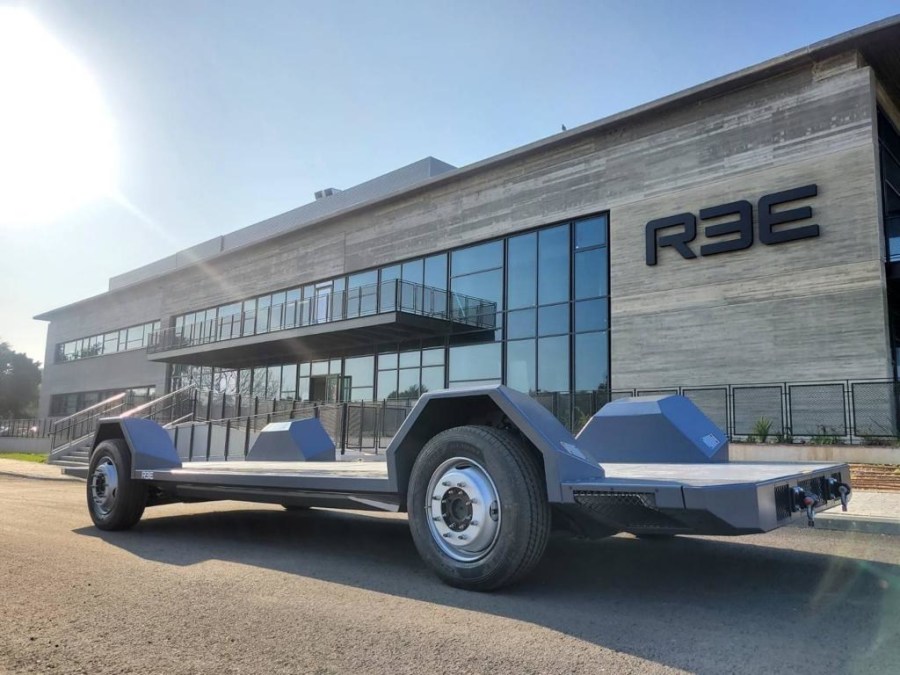REE Automotive has started testing its all-new electric P7 platform designed for commercial delivery vans and mobility operators.
The company plans trials for the platform at the REE Engineering Centre of Excellence in the UK and the REE Advanced Research and Development Centre in Israel. P7 prototypes will be available for customer evaluation during the first quarter of this year.
The platform features REEcorner technology in which each wheel has an independent drive mechanism that offers significantly greater volumetric efficiency than a conventional configuration and creates a fully flat end-to-end platform. REE also says the novel drive mechanism provides enhanced driving dynamics and safety with all-wheel steer, drive and brake options.
The company says the platform “packs up to 35% more packages than comparable commercial vehicles or the equivalent” and supports a 4000kg payload, meaning it could comfortably carry up to 30 passengers. This says REE makes it the optimal platform for target markets such as delivery and logistic fleet owners, transit authorities, school buses and mobility operators.
Daniel Barel, REE Automotive Co-Founder and CEO describes the P7 platform as “paramount” in commercial vehicle design, safety and functionality. “True to our vision of providing complete modularity and versatility, this platform can be configured in different sizes and optimised to suit a particular application and use case,” he adds.
The platform offers “virtually unlimited” design freedom to meet customers’ exact business needs, and the “architecture” supports both cost and timing benefits through the vehicle development process, as well as further production efficiencies from the resultant economies of scale, adds Barel.
Electric and autonomous vehicles built using the P7 platform, says REE, will be able to achieve driving ranges of up to 370 miles with max speeds of 80 mph and support gross vehicle weight ratings of up to 7.5 tonne.





